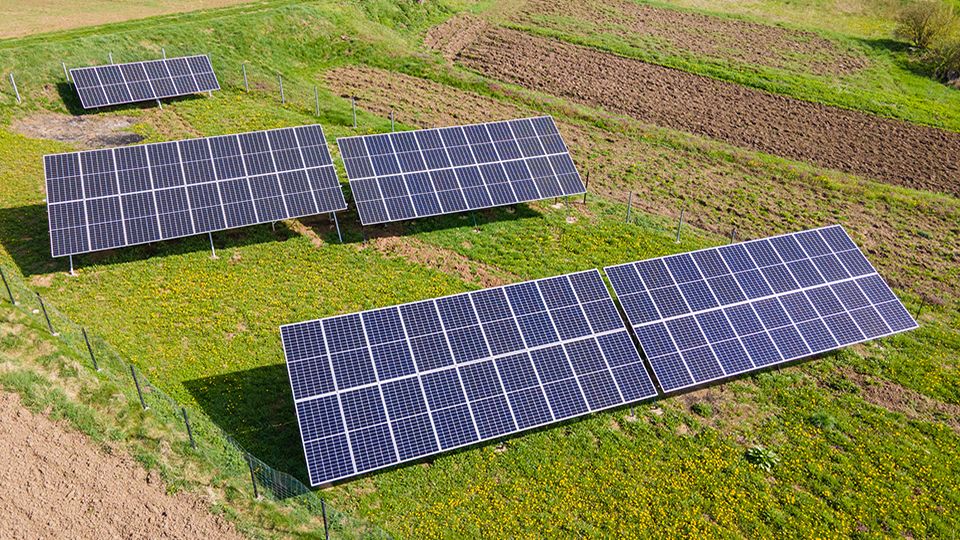Tom Rosser, investment research analyst at The Share Centre explores how investors who want to recast their investments to address climate change can access to the growing trend
Investing for climate change is not a new phenomenon; it has been around for years but had often been associated with delivering sub-par returns. As millennial investors have stepped further into the investment foray and interest in values-based investing among an older slice of the population has increased making ESG criteria a higher priority, the interest in investing for the greater good has become more focused and significant. Investors can no longer ignore the impact the changing climate will have on their portfolios and performance has also started to catch up with a number of clean energy ETFs delivering respectable annualised returns in recent years.
Millennials have long held the impact-investing spotlight, driving awareness of ESG investing and looking for ways to invest in the theme for years – and it’s easy to see why. In 2018, the UK had one of its hottest summers on record with a scientific study showing such heatwaves are now 30 times more likely due to climate change. Carbon dioxide levels have reportedly reached a three million year high, getting close to levels which will reportedly lock in catastrophic and irreversible climate change and Earth Overshoot Day (the date on which humanity’s consumption for the year outstrips Earth’s capacity to regenerate those resources) is getting earlier each year.
Recent research by The Share Centre found almost half of Gen Zs (49%) and 47% of millennials say they would be happy to make slightly less profit if the company they invest in is more aligned with their values. If these values support the commitment of replacing some traditional energy investments with renewables then this is a step in the right direction. Moreover, the increasing interest in investments that make a positive ESG impact has climbed faster among Gen X (born 1965-1979) than that of any other generation in recent years.
On the other side of the climate change coin it’s clear to see why investors have lost faith in traditional fossil fuel energy companies. The graph below illustrates the underperformance of the S&P 500 Energy Sector over the last five years against the broader index. Investors have likely been viewing energy stocks as risky, demanding better returns from them and penalising them for high levels of leverage and imprudent capital spending. We can also see the significant change in fortunes the S&P Global Clean Energy Index has had since the start of 2019 to today. An investment of £1000 would have generated £753.50 in profit over this period – equating to a return of 75.35%.
The trend continues when viewed in terms of global investment in renewable power and fuels which in 2018 totalled $288.9bn – far exceeding the financial backing for new fossil fuel power according to REN21’s Renewables 2019 Global Status Report.
For investors seeking to make a difference and tailor some of their portfolio around the climate change theme there are several options. There are many renewable energy companies focusing on manufacturing products and creating solutions which can limit or eliminate emissions. Solar companies have been a popular choice for investors with wind and water stocks also providing opportunities. There are also an increasing number of funds and ETFs available, created to follow these trends and allow investors easy access to multiple companies in one place.
The following investments contribute towards the theme of renewable energy and/or the fight against climate change:
VT Gravis Clean Energy Income: Aims to deliver a regular income of around 4.5% per annum as well as growing and preserving investors’ capital throughout market cycles. This is achieved by investing in a diversified portfolio of global listed securities which improve energy generation, supply and usage. Performance has been very strong since its inception in 2017 but has also been achieved with low levels of risk – meaning risk-adjusted returns are decent.
JLEN Environmental Assets: An environmental infrastructure investment fund seeking to generate a sustainable dividend distributed quarterly, which increases in-line with inflation. It does this by investing in projects which utilise natural or waste resources to support more environmentally-friendly approaches to economy activity. Since it came to market in 2014 it has delivered an annualised total return (including dividends) of 8.22%, outperforming the FTSE All Share by a comfortable margin – again with relatively low levels of volatility (risk).
iShares Global Clean Energy ETF: A passive index strategy allowing investors the ability to track the performance of an index composed of 30 of the largest global companies involved in the clean energy industry. The fund was launched prior to the global financial crisis and was subject to a torrid time in its initial years as the theme suffered from poor funding. More recently, performance has picked up significantly – returning almost 25% year-to-date alone.
Pictet Clean Energy Fund: Invests in companies around the world contributing to lowering carbon emissions. The portfolio has exposure to businesses involved in the supply of renewables and low carbon infrastructure as well as those helping to meet energy efficiency demands and providing enabling technologies. While it may offer good exposure to the climate change theme, the fund has ultimately underperformed its sector and benchmark over a number of timeframes.
Janus Henderson Global Sustainable Equity Fund: The philosophy revolves around selecting companies providing solutions to environmental and social challenges while taking an explicitly low carbon approach to investing. Around one-fifth of the portfolio is allocated to themes such as; cleaner energy, efficiency, environmental services and sustainable transport. It has an impressive track record in terms of cumulative performance, ranking in the top 25% of its sector over three and five years.
FP WHEB Sustainability Fund: Is a specialist fund management
business entirely focused on environmental and sustainable investing. Their
single global equity strategy seeks to invest in companies providing solutions
to sustainability challenges. A large proportion of the portfolio is allocated
toward resource efficiency, cleaner energy, sustainable transport and
environmental services. In 2018, the strategy was estimated to have helped
generate 464,000 MWh of renewable energy and avoid 218,000 tons of CO2.







